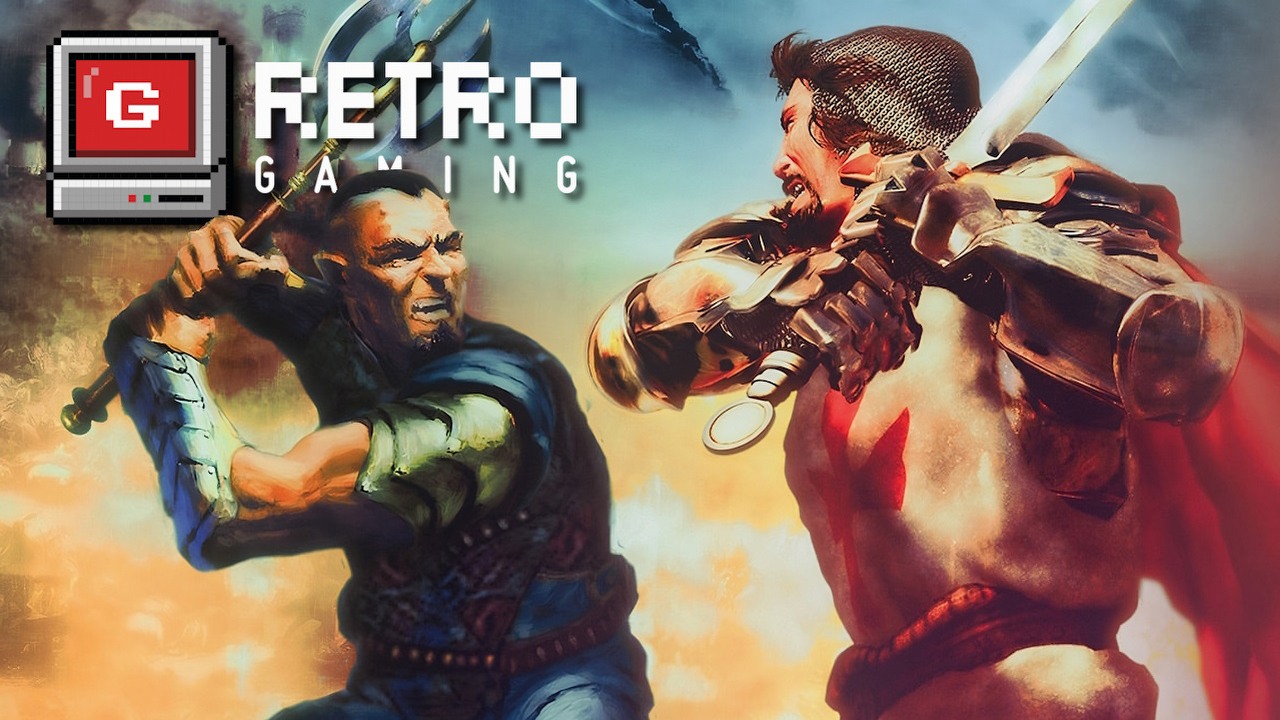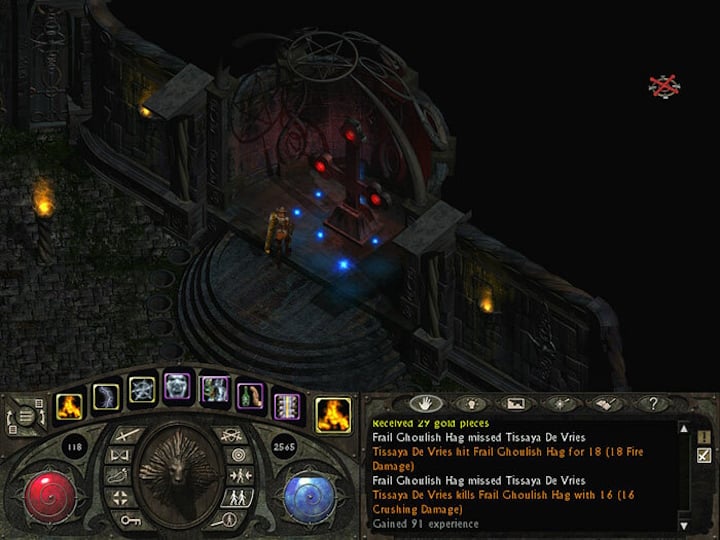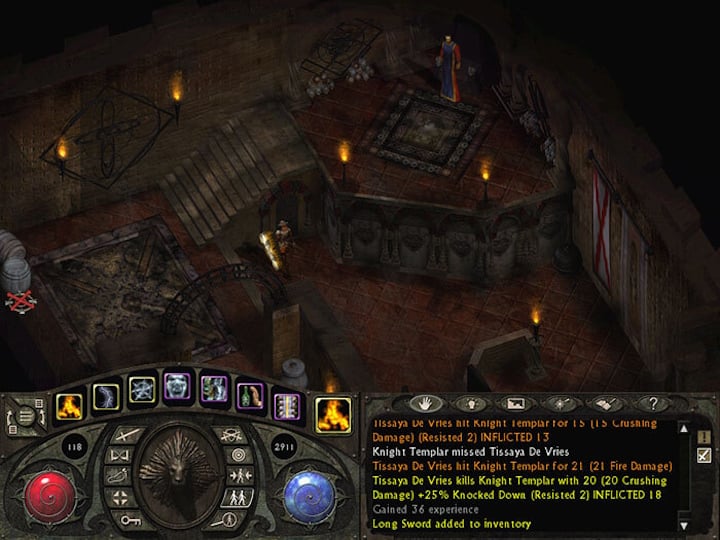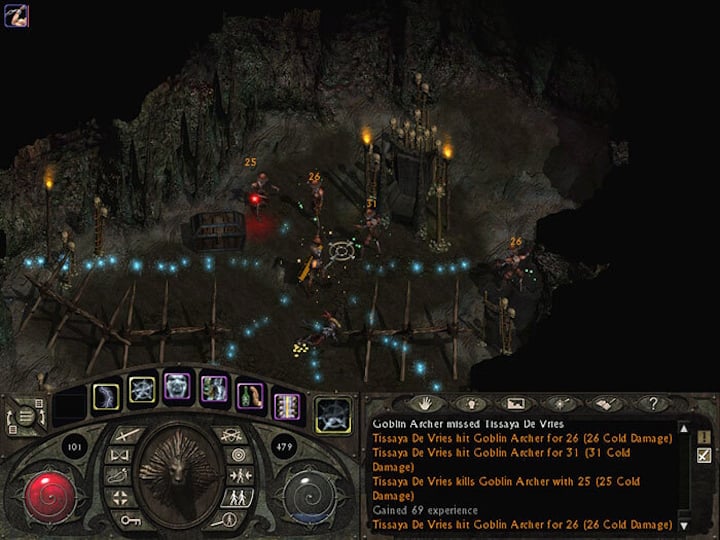Lionheart Could Have Been a Renaissance Fallout but Became Black Isle's and Interplay's Epitaph
Lionheart: Legacy of the Crusader had the makings of another Interplay hit. As a result of the legendary RPG publisher's financial problems, we got a cloying, unintentional hybrid of Fallout and Diablo. But I like it anyway.

The year 2003 marked the twilight of a certain era. Interplay, and the cult Black Isle along with it, were heading towards downfall. Icewind Dale 2, the final RPG from Feargus Urquhart's team, was released a year earlier (in 2004, a decent Baldur's Gate: Dark Alliance 2 was also released, but that's a different story). Titles such as Neverwinter Nights, Morrowind, or even Gothic 2 were slowly pushing out story-driven, isometric 2D RPGs into oblivion.
Lionheart: Legacy of the Crusader created by Reflexive Entertainment (Zax: The Alien Hunter, Crimsonland) - with the support and commission of Black Isle - could have been a beautiful swan song, but unfortunately it turned out to be a mess. The developers seemed unable to decide whether they were making an RPG like Fallout or Baldur's Gate, or a hack'n'slash rivaling Diablo 2 or Divine Divinity (the latter being a much better blend of a pure role-playing game and action). The truth appears more melancholic. The publisher simply ran out of money to finance the multi-threaded plot of Reflexive.
But guess what? Now, having thrown away all the expectations of a pompous 12-year-old with a passion for Torment - I can't help but like Lionheart. Despite all its flaws, it's a pleasant adventure, an echo of another era, which is nice to listen to, despite the clinkers.
The League of Extraordinary Renaissance People
The assumptions were excellent. An isometric RPG set in Renaissance fantasy, using the S.P.E.C.I.A.L. character development system known from the Fallout series. What's not to like here? Budget cuts (to be specific), which made Lionheart a very deficient game.

The world became disconnected from the familiar reality during Richard the Lionheart's crusade. The magic has poured over us through the Holy Land. Lionheart took us to an alternative Renaissance era, near Barcelona in 1588, when people had already somewhat adjusted to the new status quo. Our protagonist, touched by wonder (we create him ourselves, choosing statistics, perks, race, and a guardian spirit, which conditions certain additional features), escapes from the dungeon and tries to find himself - and his destiny - in the big city. He must choose to side with one of the three factions - the Templars, the Inquisition, or the Wielders (mages hiding from the Inquisition). He will make friends - or not - with such celebrities as Leonardo da Vinci, Cervantes, Shakespeare, Galileo Galilei, and Niccolo Machiavelli.
Basically, the first half of Lionheart delights with its plot, alternative renaissance atmosphere, good dialogues, and interesting quests. The mechanics also work well because the designers have maintained a good balance between battles (most of which take place in the city's underground, while on the surface we deal with things in a more "civilized" manner) and running through the streets of Barcelona for human matters. There are plenty of choices here, moral gray areas, and simply opportunities for proper role-playing. Reflexive effectively captured our perceptions of the charisma of people who served as the "faces" of the Renaissance in textbooks.

Cut RPG
In fact, at the beginning it felt like Fallout Fantasy. Unfortunately, this title still holds - and maybe always will - Arcanum. Lionheart lays out that after leaving the brilliantly conceived Barcelona, we fall into the snare of Diablo-clone, and only moments before the end does the game remember what it was supposed to be.
Due to disruptions at Interplay and Black Isle, there was a shortage of funds to develop and oversee extensive quest sequences, plot, and dialogues in the latter part of the game. So Reflexive had to stitch the game together with the meager resources it had at its disposal. For a good chunk of the game, we have to chop our way through like in Diablo or Sacred. Lionheart was obviously not designed to be a walk in the park, despite having real-time combat. Certainly to a lesser extent than the much more dynamic Divine Divinity.
Combat, if I read the devs' intentions correctly, would ideally serve as an addition and variety to the gameplay, or possibly an optional forceful solution, if we decide on such. The close-quarters combat was relatively enjoyable and didn't pose a problem until the difficulty level disgustingly shot up. We could survive here as long as we put some points into combat skills, not just talking.
Characters focused only on conversation are screwed after leaving Barcelona. Where the script cuts begin, the negotiations end. And as a hack'n'slash, for all its limitations, poor balance, and responsiveness closer to Arcanum than Diablo - Lionheart performs mediocrely.

How to play Lionheart: Legacy of the Crusader today?
It's a shame because even today the game looks and sounds very good. Sure, these are retro pixels, but also very nicely designed locations, character models, animations, and costumes. Atmospheric music by Inon Zur is playing in the background. It's clear that although Lionheart was a commission, Reflexive developed it with joy - as long as they had money to do so.
Unfortunately, in the end, we get a not entirely balanced action-RPG mess. Nevertheless, I cannot in good conscience advise you against purchasing. The game on GoG usually costs $9.09.
Despite its flaws and limitations, Lionheart exudes charisma, and something of that Barcelona charm stayed with me until the end of the adventure. Even though the game is somewhat disappointing with its change of character halfway through, it's worth giving it a chance if you like classic RPGs. I regret what Lionheart could have been - but not experiencing the game itself. And maybe it will be the same in your case.
- Larian Studios dispels doubts about Divinity once and for all. New RPG may follow in Baldur's Gate 3's footsteps, but release is a long way off
- Bethesda doesn't have a heart for fans of The Elder Scrolls 6. Devs put it simply: they will give themselves „as much time as it takes to make the game great”
- Baldur's Gate 3 sales aren't slowing down even for a moment. Swen Vincke gave a new, round figure
0

Author: Hubert Sosnowski
He joined GRYOnline.pl in 2017, as an author of texts about games and movies. Learned how to write articles while working for the Dzika Banda portal. His texts were published on kawerna.pl, film.onet.pl, zwierciadlo.pl, and in the Polish Playboy. Has published stories in the monthly Science Fiction, Fantasy, and Horror magazine, as well as in the first volume of the Antologii Wolsung. Lives for "middle cinema" and meaty entertainment, but he won't despise any experiment or Fast and Furious. In games, looks for a good story. Loves Baldur's Gate 2, but when he sees Unreal Tournament, Doom, or a good race game, the inner child wakes up. In love with sheds and thrash metal. Since 2012, has been playing and creating live action role-playing, both within the framework of the Bialystok Larp Club Zywia, and commercial ventures in the style of Witcher School.
Latest News
- End of remote work and 60 hours a week. Demo of Naughty Dog's new game was born amid a crunch atmosphere
- She's the new Lara Croft, but she still lives in fear. Trauma after Perfect Dark changed the actress' approach to the industry
- „A lot has become lost in translation.” Swen Vincke suggests that the scandal surrounding Divinity is a big misunderstanding
- Stuck in development limbo for years, ARK 2 is now planned for 2028
- Few people know about it, but it's an RPG mixing Dark Souls and NieR that has received excellent reviews on Steam, and its first DLC will be released soon


